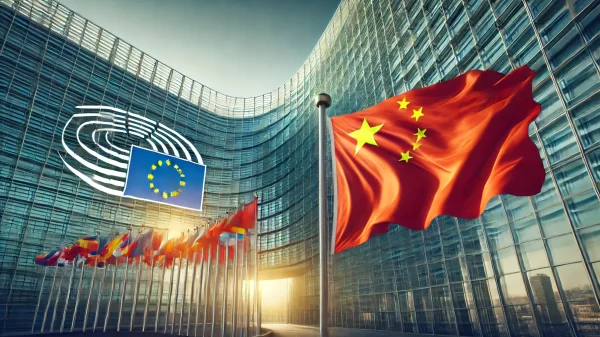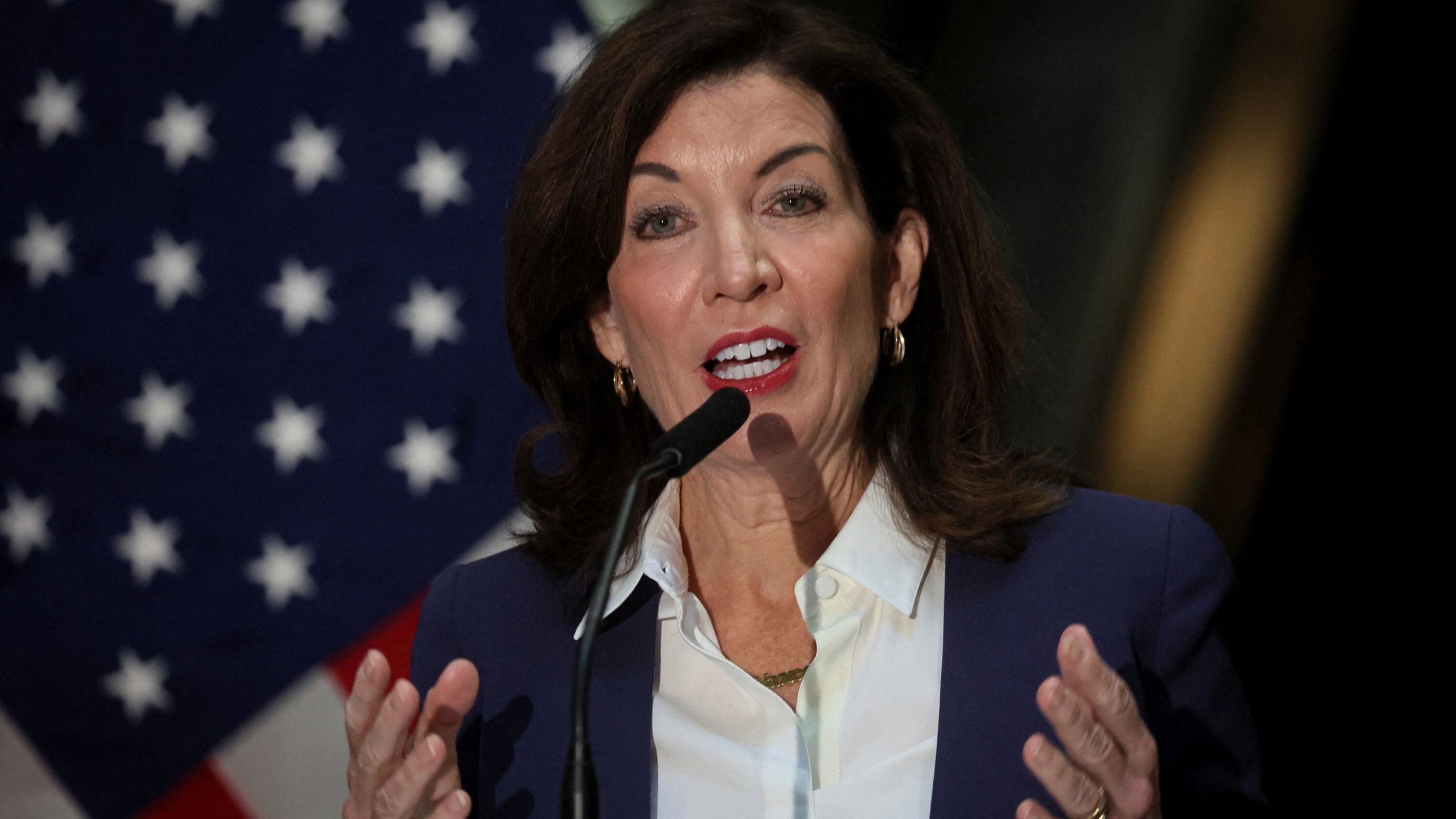Mayor Eric Adams announced on Sunday that New York City was poised to eliminate school mask mandates and vaccine requirements for restaurants, gyms and movie theaters, by March 7, if case numbers remain low.
The rollback of pandemic restrictions, which had served as a crucial weapon in the city’s battle against the coronavirus, is a milestone that many hope will help to restore a sense of normalcy in the city and boost its economic recovery.
Mr. Adams has said for weeks that he is eager to remove virus-related restrictions across the city, including mask mandates in schools. In a statement on Sunday, he promised a final decision by Friday, saying: “I want to thank the millions of New Yorkers who have gotten vaccinated to help stop the spread. New Yorkers stepped up and helped us save lives by reaching unprecedented levels of vaccination.”
The mayor said he wanted to give business owners time to adapt — a nod to the toll that the virus and related restrictions have taken on small businesses. Both Mr. Adams and Gov. Kathy Hochul have focused on reviving the economy in New York City, where the unemployment rate has remained stubbornly high.
The news came hours after Ms. Hochul announced the statewide mask mandate for schools would be lifted, empowering local officials to assess the need for additional restrictions in their schools. Vaccine mandates in New York City for municipal workers and private employers remain in effect.
“My friends, the day has come,” Ms. Hochul said, reiterating that the decision, which is set to take effect on Wednesday, came in consultation with public health and education officials.
In making her announcement, Ms. Hochul said that the mask mandate had been a vital aid in battling the Omicron surge. “When I look back at what was going on just a short time ago, I am so happy that we did have a mask requirement in place for schools at the time,” she said. “That’s how we kept these numbers from getting even worse.”
The state’s decision does not supersede those of individual districts and counties like New York City, which can still impose mask mandates and other restrictive measures.
The rollbacks came a day after New York announced a statewide seven-day average positivity rate below 2 percent and hospitalizations under 2,000 for the first time since before the Omicron surge. The drop is part of a national decrease in coronavirus cases. Across the state, hospitals that were forced to limit elective procedures as a result of the virus have been approved to resume normal operations.
New York City’s vaccine mandate for indoor dining, movie theaters and gyms, known as the Key to NYC program, was put in effect by Mr. Adams’s predecessor, Bill de Blasio, as an essential strategy to encourage New Yorkers to get the Covid vaccine and to reduce the spread of the virus. Dr. Jay Varma, a top health adviser to Mr. de Blasio, emphasized on Sunday that the vaccine mandate for all employees in New York City who work in person was still in effect, and he called on the Education Department to make high quality masks available for students who still wanted to protect themselves.
Mr. Adams has focused on the city’s recovery and public safety during his first weeks in office and encouraged tourists to return. He has repeatedly encouraged New Yorkers to return to offices and argued that low-wage workers and small businesses depended on them.
For the first time last week, New York City released data showing that just 59 percent of students in city schools had received at least one dose of the vaccine. But even that rate contained significant disparities between neighborhoods and schools, the education nonprofit Chalkbeat reported, finding that the most vaccinated district in Manhattan had a vaccination rate more than double that of the least vaccinated district in Brooklyn. Vaccination rates are much higher among adults; more than 96 percent of New Yorkers who are 18 and older have received one dose.
Dr. Uché Blackstock, a doctor who focuses on health equity, said that there were wide inequities in vaccine rates among schools and that her children would continue to wear masks at their public schools in New York City.
“Removing mask policies in these schools is dangerous,” she wrote on Twitter.
The announcement on masks in schools seems poised to end a bitter and divisive chapter in the state’s pandemic history. Schools have increasingly become battlegrounds in a polarized national conversation between teachers, parents, students and politicians over what measures are appropriate to defend against the virus.
Ms. Hochul has been under pressure to roll back the state’s rules on masking in schools since she allowed the mandate for businesses to lapse earlier this month. At the time, the governor promised to revisit the question of masks in schools after students returned from their midwinter break in early March, but she found herself under increased pressure after nearby states with Democratic governors, including Connecticut, New Jersey and Delaware, announced plans to lift their mandates.
Then, on Friday, the Centers for Disease Control and Prevention in Washington released new guidance that masks and social distancing were necessary only in areas where infection risk was high, clearing the way for the lifting of many virus prevention measures.
That announcement came as the agency shifted its strategy in assessing risk from one based on case counts to one that weighs the stress on hospitals by coronavirus patients, as well as new cases per 100,000 people over the previous week. The guidance starkly changes the virus assessment nationwide from one in which 95 percent of counties were considered high risk to one in which most Americans could return to lives without masking or social distancing.
Sunday’s announcements were celebrated by many across the state. Kathryn Wylde, president of the Partnership for New York City, said that the rollbacks were welcomed.
“The business community is eager to get beyond pandemic conditions and restrictions,” she said.
And Republicans cheered the news on masks in schools. “The unmasking of our school children is a long overdue victory for kids and parents, educators and common sense,” State Senator Rob Ortt, a Republican and the minority leader who has pushed for a rollback of the mandate, said in a statement.
Although Ms. Hochul’s decision leaves actual implementation power to the state’s hundreds of school districts, the announcement is a major moment in New York’s halting efforts to keep its public schools open amid the pandemic. That is especially true in New York City, which first closed its sprawling system of roughly 1,600 schools in March 2020 and has kept strict virus mitigation measures in place since schools began to reopen in September 2020. The city lifted its outdoor mask mandate for schools only this past week.
The United Federation of Teachers, which represents teachers in New York City struck a pensive note, with its president, Michael Mulgrew, saying the union would “confer with our own independent doctors, look at the data from take-home test kits and random in-school testing this week, and make sure all of that is taken into account as New York City reviews its own school masking policy.”
And while many support the end of mandates, the shift will almost certainly concern a significant number of New Yorkers who believe it is premature. A recent poll from the Siena College Research Institute found that 58 percent of New York registered voters believed the state should hold off on lifting the mask mandate in schools until reviewing data from early March. That same poll, which was taken two weeks ago, found that 45 percent of respondents disapproved of the state’s rollback of mask mandates in private businesses.




























